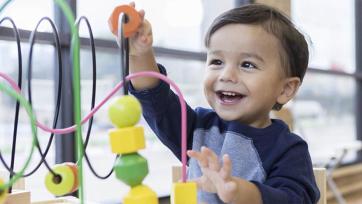Everyone has their own opinions and methods when it comes to raising children. However, there are some basics that all parents should strive to provide for their children. In this article, we'll discuss the seven basic requirements of a healthy kid and the steps you may take to provide for them. From nutrition to exercise to stress relief, read on to learn more about what the developing child needs to thrive.

Physical needs
Physical needs are the necessities that all living creatures need to survive. These include water, food, air, and shelter. In addition to these necessities, a child may require clothing, toys, and medical care.
The following is a list of physical needs that may be present in a child:
Water: A child needs at least 1 gallon of water per day. This amount increases as the child grow older. Children who are not hydrated can experience problems such as dehydration, headaches, irritability and even seizures. Having access to clean drinking water and enough of it throughout the day is essential.
Food: A child's diet primarily consists of proteins, carbohydrates and fats. Every day, kids should eat between 12 and 18 ounces of solid food, according to the American Academy of Pediatrics. Some foods that are good for a child's diet include fruits and vegetables, whole grain bread and cereals, lean meats and poultry, low-fat dairy products, nuts and seeds. It is essential to ensure that the food a child consumes is nutritionally balanced and contains no harmful additives or toxins.
Air: Children need oxygen to survive. Their lungs develop gradually during their first year of life until they reach the height of their respiratory system development (approximately two years old). After this point, the respiratory system will continue to grow but at a slower rate, so children up until about four years old typically need around 16 cubic feet.
Emotional needs
The National Institute of Mental Health (NIMH) states that all children have basic and consistent emotional requirements. They include feelings of safety, satisfaction, love, belonging, and competence. In addition to these actual needs, children may have specific emotional needs that depend on their situation and development.
Children's most common emotional needs are self-esteem, security, nurturing care, attention, guidance, and support. Each child's emotional condition is unique and requires tailored treatment.
Understanding that not all children have the exact emotional needs is essential. Some children may need more attention than others; some may need more structure in their lives, while others may prefer more freedom. It is also important to remember that not all children with specific emotional needs will act out or display symptoms of mental illness.
Spiritual needs
There are many needs of a child, but Spiritual needs are often at the top of the list. Children need to feel loved and appreciated, have access to their feelings and thoughts and have a sense of security. All of these things can be provided by a caring parent or guardian.
Educational needs
The needs of a child vary greatly depending on the child's age and stage. However, there are some general needs that all children have, regardless of their circumstances. These include physical health, emotional well-being, intellectual stimulation, a safe environment, and relationships with family and friends.
There is no one way to provide these needs for all children. However, common factors can help increase a child's chance of experiencing them. For example, providing a safe and healthy environment is essential for all children. Still, it may be necessary for vulnerable people with challenges such as poverty or abuse. Providing educational opportunities that challenge a child's intelligence and creativity can also be beneficial.
It is important to remember that only some types of intervention will meet every need. Sometimes the most important thing is providing support and care for the child in their home or community.
Financial needs
To understand what a child needs, it is essential to have an account of the stages of development a child goes through. A child's needs change as they grow and develop, but some everyday needs remain throughout a child's life are:
- Security
- Love and affection
- Companionship
- Independence
- Education
Social needs
There are many different needs that a child may have. Some of these needs may be social, emotional, and physical. The requirements of one youngster will not be the same as those of another. However, there are some general needs that all children have. These general needs include:
1. A need for attention and love
2. A need to feel safe and secure
3. A need to feel connected to others
4. A need to develop relationships
5. A need for play
It is essential to pay attention to each child's specific needs to meet their needs as effectively as possible. Varied kinds of care, affection and play will elicit different reactions from children. Paying attention to all the general needs listed above is also essential. Doing so can lead to significant problems down the road for the child.







